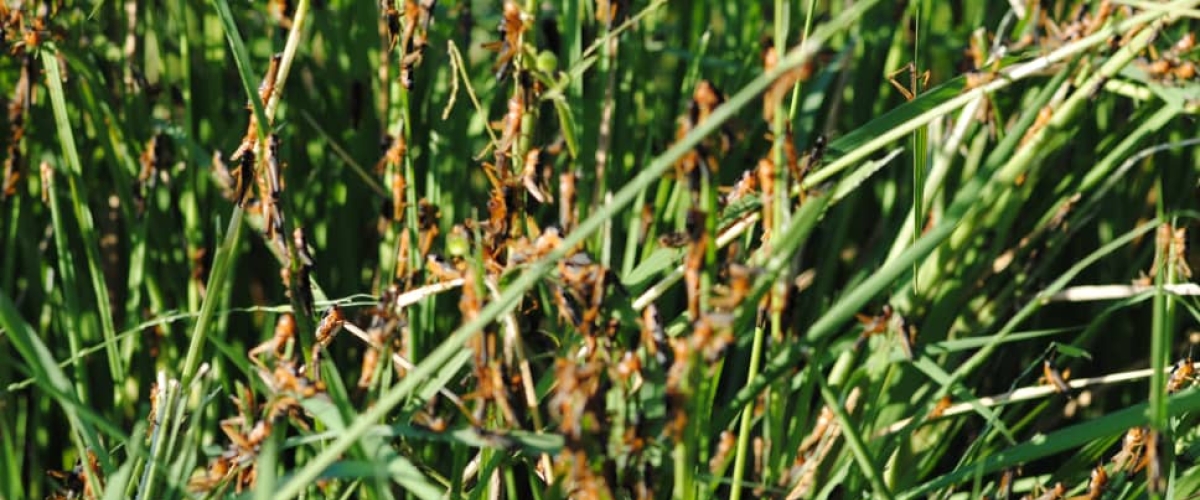
By Josiah Mpofu
Through the Ministry of Agriculture, the Zambian government has dispatched 73 thousand grammes of African Migratory Locusts (AML) Metarhizium (Bio-Pesticide) to fight against the deadly pest from ravaging field crops and livestock pasture in Southern and Western Province. Principal Agricultural Officer Morton Mwanza disclosed in Sesheke that the pesticides are being distributed to six districts, including Kazungula in Southern Province and Sesheke, Senenga, Sioma Nalolo and Mwandi in Western province.
Mr Mwanza said quantities of Bio-Pesticides being distributed for each district depend on reports received from the District Agricultural Coordinators regarding the areas at risk of the AML infestation. He added that the pesticide distribution is also dependent on the number of farmers in a given district and the geographical location under the AML attack.
Mr Mwanza disclosed that the Bio-Pesticides under distribution were procured by the Food and Agriculture Organization of the United Nations (FAO) to help control and contain the pest. He advised agricultural staff to spray the locusts when they are still on the hoppers stage for the effectiveness of the pesticide. “It is better to spray the locusts when they are still on hoppers stage because if they form swarms which contain millions of locusts, it might be difficult to control as they can move 200 Kilometres per day,” explained Mr Mwanza.
And Senior Research Entomologist at Zambia Agriculture Research Institute (ZARI) Vincent Simwinga said the current increase of the AML infestation was necessitated by the effects of climate change which have not spared many African countries, including Zambia. Mr Simwinga observed that the AML are so destructive that they can cause enough damage to both maize and vegetables, which most rural communities depend on. “One locust is capable of eating 2kg of food per day, and a single swarm can eat as much in one day as 2,500 people. It can destroy crops and livestock pasture within few minutes hence the need to find many ways of combating the deadly pest,” said Mr Simwinga.
Mr Simwinga emphasized that the AML should not be left unattended as it is worse than the Fall Army Worms. He advised that the Bio-pesticide must be kept in a cool environment such as a refrigerator to stay for a long time as it is a fungus that is a living organism. He added that once opened; the sachet was to be used. Mr Simwinga stressed that once the locusts are sprayed with Metarhizium, they can only survive six to seven days and later die.
“The pesticide is contagious as it can spread from one locust to the other, thereby weakening their linkages and life cycle. The life span of the AML is close to 40 to 50 days, depending on the temperature and other agents that support their existence. The AML thrive on mild weather conditions,” said Mr Mwanza.
Mr Simwinga urged the agricultural Camp officers and the community to constantly monitor and report any signs of the AML when they are still hopping as it is easy to prevent them from breeding, thus reducing their population. –
The author is a reporter at the National Agricultural Information Service (NAIS)






